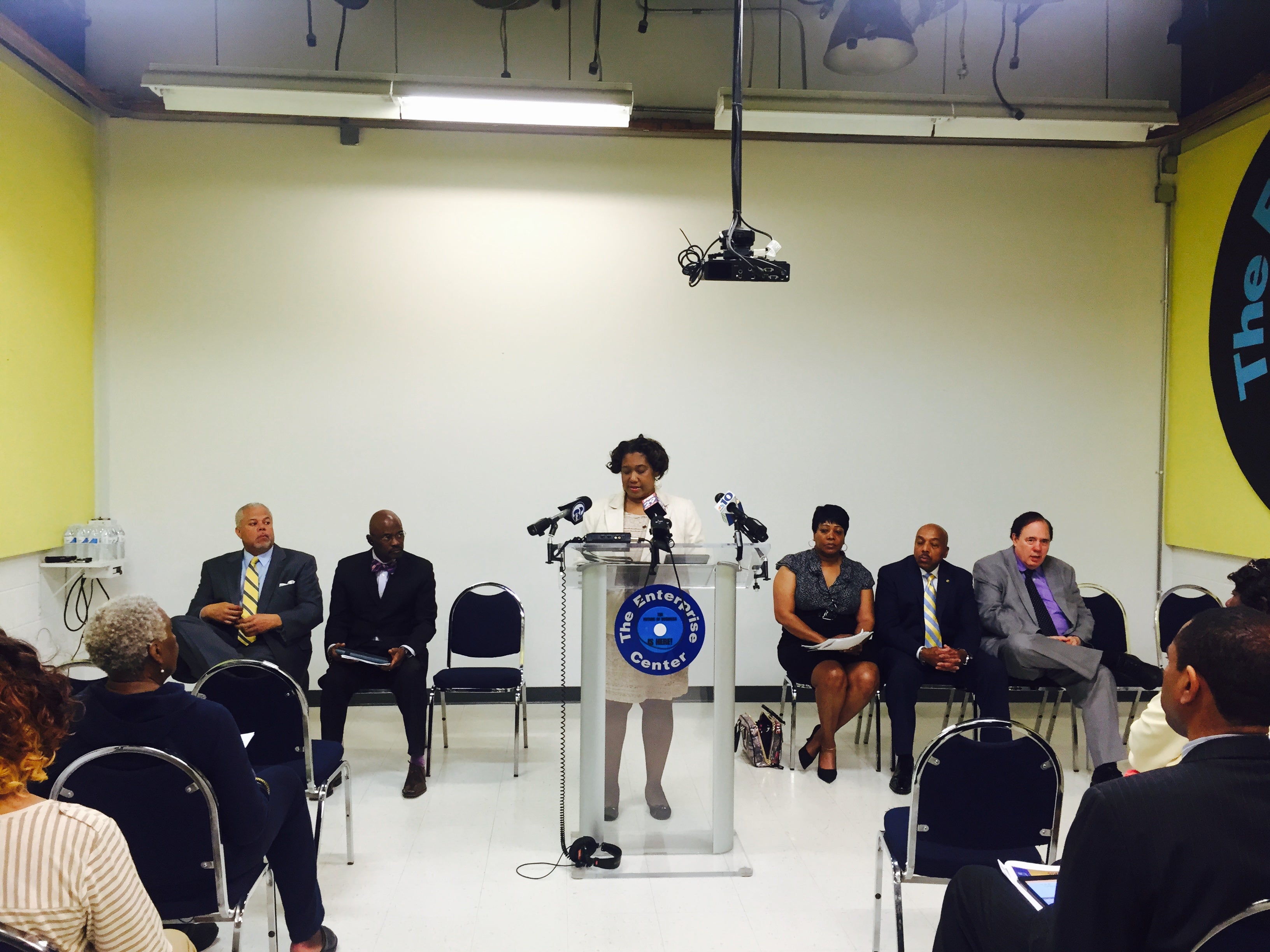Philly leaders, activists assess lessons from Baltimore

State Rep. Vanessa Lowery Brown, at the lectern, and other community leaders meet for a Monday news conference organized by the Coalition for Life Equality. (Bobby Allyn/WHYY)
A group of community leaders from Philadelphia met Monday to discuss what the city can learn from the upheaval in Baltimore.
Baltimore officials last week announced the indictment of six officers in connection with the death of Freddie Gray, who died from spinal injuries a week after being taken into police custody.
But the Philadelphia speakers said the perception on the streets is that police misbehavior too often goes unpunished.
Attorney and activist Michael Coard said, in many Philadelphia neighborhoods, people feel killings by civilians are treated far more harshly than when a police officer fatally shoots a suspect.
“When Jamal kills Tyrone, Jamal gets arrested, he gets prosecuted, he gets convicted, he goes to prison. But when Officer Johnson kills Jamal, nothing happens,” Coard said. “So I can yell and scream about white cops killing black men because there is no justice.”
It’s not productive to talk about “black-on-black” crime or “white-on-white” crime, Coard noted. Neighbors tend to kill neighbors, he said, and people of the same background tend to live together. So it’s better to focus on what plagues entire communities, rather than simplifying violent crime in racial terms.
But when it comes to police profiling, Coard said, race is an important factor — one that’s not diminished by greater black representation.
“We got a billionaire in Oprah Winfrey. We got a black president. We got a black police commissioner here in Philly, black mayor, city council president,” Coard said. “And therefore, we’re in this post-racial society.
“OK, that superficially sounds good, but let me pose this question to you: If tomorrow morning, 3 a.m., you’re driving anywhere in Philadelphia, and lights and sirens go off behind you and you’re about to be pulled over, would you prefer to be a white male driver or a black male driver?” he continued. “I don’t even have to answer that question because it’s obvious.”
Coard urged his listeners to put more pressure on City Council and the state Legislature to scrap or amend the police arbitration system. The city’s arbitration process for police officers was created by a state legislative act decades ago and has made permanently purging the Philadelphia Police Department of disgraced officers very tricky.
In the closed-door arbitration process, many officers who are fired for misconduct win reinstatement.
Police Commissioner Charles Ramsey is also a critic of the process, since firings he has made have often been overturned.
“I would say that that’s nothing that they should be proud of because many of the people they bring back are people that should be fired and should stay fired,” Ramsey has said.
WHYY is your source for fact-based, in-depth journalism and information. As a nonprofit organization, we rely on financial support from readers like you. Please give today.

